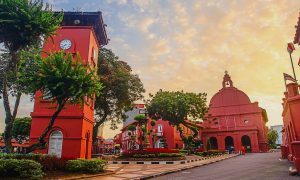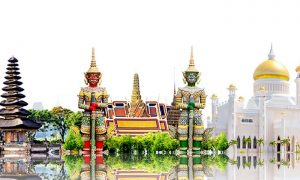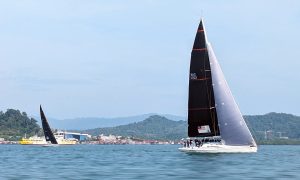LOUGHBOROUGH UNIVERSITY PROFESSOR KAREN O’REILLY HAS BEEN VISITING MALAYSIA TO RESEARCH A FAIRLY RECENT PHENOMENON – LIFESTYLE MIGRATION. FRANCES WILKS CAUGHT UP WITH HER IN PENANG AND HEARD ABOUT THE HOPES, DREAMS, AND CONCERNS FOR THOSE WHO ARE LIVING IN A COUNTRY FAR FROM THEIR NATIVE LANDS.
Karen O’Reilly, who was born in Seremban, has returned to the land she left at just six months old to study lifestyle migrants: people who choose to move to another country with the belief that a more fulfilling way of life is available there. Although migration is perhaps as old as humanity, most previous migrations were prompted by hunger – often actual rather than metaphorical – and many migrants arrived in their new country with few material resources. Today’s “lifestyle migrants” are in a different class entirely. They are usually reasonably well-off in comparison to the average income levels in the country they are migrating to, and are often motivated by the search for “the good life”.
Karen herself is no stranger to expat life (although she finds the word somewhat elitist, preferring instead the more neutral “migrant”). In the 90s, she and her partner lived for part of the year in Spain on the Costa del Sol, where many Britons have lived and still live. It was during her time in Spain that Karen researched her book The British on the Costa del Sol (2000), which paints an interesting picture of a diverse group of people who have made the conscious choice to live transnationally, neither “colonising” Spain (and thereby changing it), nor fully integrating with its culture either.
Malaysia, Karen’s new area of academic research, has fostered lifestyle migration in part through the MM2H programme, but has attracted a slightly different migrant group than the Costa del Sol crowd. People choose the MM2H programme for a variety of reasons. Economics are part of the mix, as a comfortable lifestyle is often more affordable here, but it is often more than that. Many arrive here seeking the chance to experience more than they feel they have up to that point, and to become enriched and developed individuals, which they feel they can only do by uprooting themselves.
Karen is conducting her research through the use of questionnaires, and she has been looking at migrants’ likes and dislikes of the country, the question of hired help, and issues such as coping with retirement. In the results so far, Karen has found that many people enjoy the experience of multiculturalism, which is particularly prevalent in Malaysia as migration has been going on for centuries. Lots of respondents love the climate and the sun, and the sensuous experience of tropical colour and vibrancy is also prized, with people citing examples such as the rich variety of fruit and the smells in the street, markets, and temples.
One of the issues that Karen has unearthed is that many people find the practise of having a live-in maid particularly challenging. Having, for the most part, come from a generation that has not grown up with servants, expats often take time adjusting to being waited on. That said, as many lifestyle migrants are in their middle or later years, the possibility of having affordable help is seen as a real bonus, offering older people the chance to cope in the future without relying on the state or on family.
One of the most interesting questions that Karen asks is “where is home?” The responses received so far have varied from the concrete – “where my wife is” and “where my house is” – to the more abstract “everywhere.” Many expats have sought to re-create “home” by bringing treasured possessions or pets with them and, often, home becomes an internal state, a feeling of belonging to the human race rather than an outward attachment to a piece of land. But “where’s home?” remains a profound question, especially as most of us who choose to become lifestyle migrants have to cope with the loss of a simple answer.
———————————————————————————————————
If you would like to take part in Karen’s research, visit https://www.survey.lboro.ac.uk/ lminasia and fill in the online questionnaire (before 30 November). A free hamper of hard-to-find goodies worth RM500 (sourced in UK) will be awarded to the most interesting and thoughtful response. You can also follow the remainder of Karen’s research – which includes experiences of migration in Thailand and China, as well as Malaysia – at http:// lifestylemigration.wordpress.com.
———————————————————————————————————
This article was written by Frances Wilks for The Expat magazine.
Source: The Expat November 2012
Read more:
"ExpatGo welcomes and encourages comments, input, and divergent opinions. However, we kindly request that you use suitable language in your comments, and refrain from any sort of personal attack, hate speech, or disparaging rhetoric. Comments not in line with this are subject to removal from the site. "

















